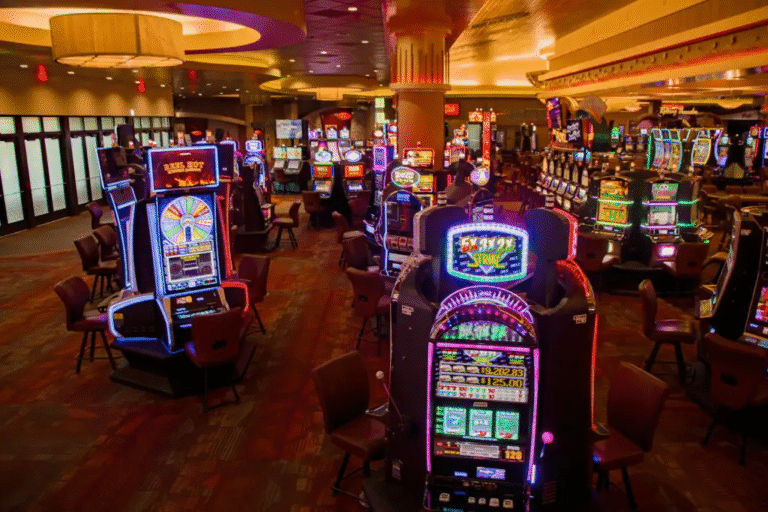Philippine Authorities in Crackdown on Digital Gambling Advertising
Authorities in the Philippines are cracking down on digital gambling advertising. This has resulted in amendments to traditional marketing methods and even the use of payment gateways.
The crackdown on gambling ads began on July 7th, 2025. The Philippine Gambling Regulator announced a shutdown, which saw the removal of all billboards and posters on public transportation advertising gambling services and products. They announced that advertisements must be approved and promote responsible gambling. All licensees and stakeholders were instructed to remove all their gambling-related ads by the middle of next month.
The Ongoing Battle on Gambling Advertising
The Philippine Gambling Regulator and its Advertising Standards Council (ASC) have been collaborating on a plan to promote responsible gambling. A memorandum of understanding was signed in July, which saw them added to a must-screen list that also included alcohol, some OTC medications, and food supplements.
CEO of the Gaming Corporation, Alejandro Tengco, explained that this had been a year in the making at the ceremony. All branded or corporate gambling ads must now be vetted and approved by the ASC. It was hoped this would curb misleading content and protect vulnerable groups.
So far, there has been no talk of the impact on affiliate advertising. There are many fantastic third party websites online, such as SBO.net, who rank and review online gambling services for visitors. They provide an invaluable service, listing sites based on game selection, payment methods and customer service. In many ways, these have helped clean up the gambling industry by providing insights and filtering out poor providers.
The Pause by Social Media Companies
This meant many social media platforms hit pause on online gambling ads until further clarification could be given. TikTok was one of the first to announce that it would cease gambling promotions on its platform starting on August 22nd.
The provider said its existing rules are for licensed and regulated operators that have strict age restrictions. It gave a list of criteria that must be adhered to if companies want to continue using the service. These included:
- The restriction of ads to those over 25 years of age
- They must provide evidence that the business works under Philippine law with a license from a regulator or relevant authorities.
- Companies must work closely with a representative from TikTok to ascertain their eligibility and gain permission.
Viber is another platform that has vowed to work closely with the authorities. Its current advertising standards permit gambling ads only in areas and jurisdictions where it is legal. This includes limited advertising for physical and digital casinos, lotteries, poker, and bingo. However, advertisers do have to go through a process in conjunction with Viber staff. This includes age-related compliance and jurisdiction-based age-related requirements.
Viber also added that while certain ads may be approved, it does not facilitate gambling on the platform itself. They added, “We do not host gambling or offer features that enable online gambling directly in the app, and we do not provide or process payments for any gambling service.”
Gambling Regulator Cuts Off E-Wallets
Not all of the Gaming Corporations’ plans have gone well, however. Last week, the Central Bank of the Philippines ordered e-wallets to cut off access to gambling companies. Icons and links to gambling platforms had to be removed within a 48-hour period. The policy had been announced during a Senate Committee on Games and Amusement hearing. Any wallets that still had links when the time was up would have been found in contempt of court. Several major wallets complied with this immediately, including GCash and Maya.
Early signs were that this did result in a drop in gambling activities. The Philippine Amusement and Gaming Corp reported a 50% fall in gambling transactions in a two-day period starting on the 17th. However, the order does not mean that gambling platforms have to remove links to e-wallets. They can still be used to fund gambling, but they are not being used so directly through e-wallets.
The Move to Encrypted Apps
Within a few days, many operators had switched tactics. Gambling firms began to turn to encrypted messaging apps, such as Viber, to keep their gaming business going. This was the view of Senator Erwin Tulfo. BingoPlus, one of the biggest providers in the country, ensured customers could still be reached through its app, website, and Viber. Money could still be deposited and withdrawn using the major e-wallets.
There were also reports that vouchers were being sold on websites like Lazada. They allowed people to buy them with their bank cards or e-wallets, and then redeem them in the gambling applications. Tulfo added that the move was not perfect and that comprehensive solutions needed to be searched for.
The regulators of the country seem to be making quick decisions. They would benefit from taking lessons from a country like the Netherlands. They are currently debating and researching whether an age increase in slot games will lead to black market use. All of this is a calculated and reasoned approach to the impact of change in gambling regulation.
Without this, fast changes will have unexpected consequences that result in a game of cat and mouse. Tulfo may be right in suggesting that comprehensive solutions are needed, and until then, this chase may continue in the country.

